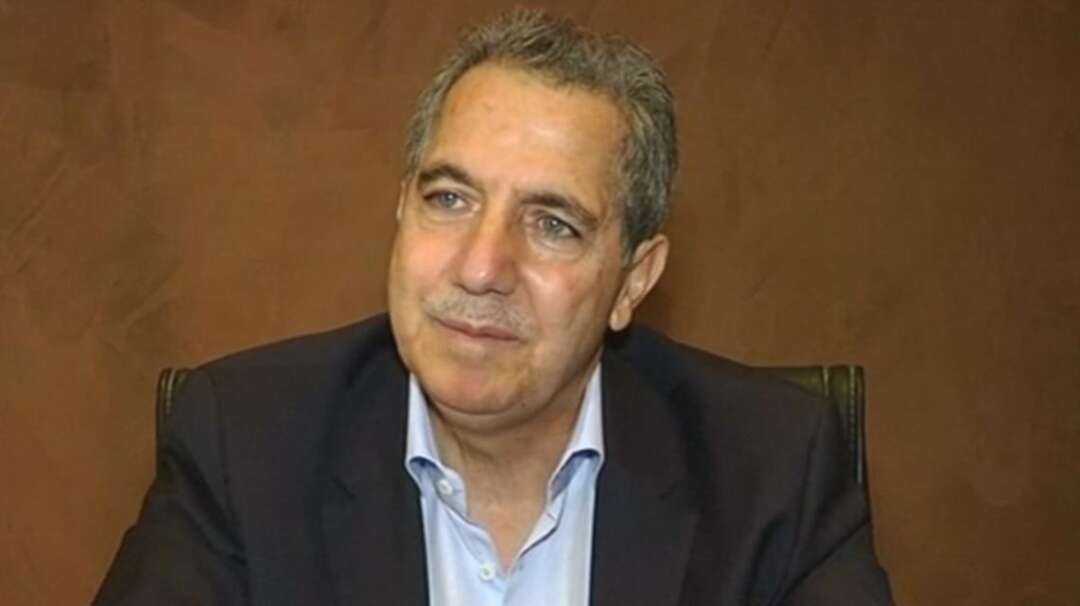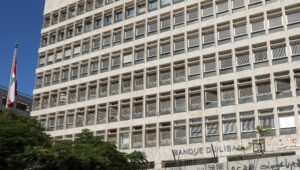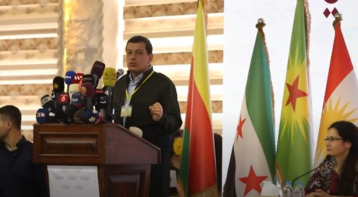-
As financial crises tightens Lebanon reduces food subsidies

Lebanon is scaling back food subsidies and will gradually raise gasoline prices to save dwindling foreign reserves, the caretaker finance minister said.
The central bank has $16 billion left in foreign reserves, of which only $1 billion to $1.5 billion can be used to fund subsidies, enough for two to three months, Ghazi Wazni said in an interview with Bloomberg. Reserves have halved from about $30 billion a year ago.
Lebanon can no longer continue with the same pace of subsidies,” Wazni said, without giving a time frame for the changes. “It costs $500 million a month, $6 billion a year. That’s why the government made the decision to rationalize subsidies and reduce them on some items.”
Wazni’s comments come amid furious protests sparked by a sudden plunge in the Lebanese currency. The pound plummeted below 13,000 per dollar on the black market Monday, shedding more than 20 percent in two weeks. Since anti-government protests erupted in October 2019, the currency has lost nearly 90 percent of its value, pushing millions into poverty. The inflation rate was 84 percent last year, with food inflation hitting an annual 402 percent in December.
The central bank has stabilized wheat, medicine and fuel prices by providing importers with hard currency at the largely-defunct official rate of 1,507 per dollar. It’s also given a preferential exchange rate to importers of 300 basic food and household products, allowing them to buy dollars at 3,900 pounds each. Other goods are financed in a burgeoning black market at greater cost.
 People gather at the municipality building that was set ablaze overnight, in the aftermath of protests against the lockdown and worsening economic conditions, amid the spread of the coronavirus disease (COVID-19), in Tripoli, Lebanon January 29, 2021. (File photo: Reuters)
People gather at the municipality building that was set ablaze overnight, in the aftermath of protests against the lockdown and worsening economic conditions, amid the spread of the coronavirus disease (COVID-19), in Tripoli, Lebanon January 29, 2021. (File photo: Reuters)The government will remove certain products, including cashew nuts and some branded coffees, from the subsidized list partly because they were smuggled abroad for profit, Wazni said. It also plans to gradually increase prices at fuel stations in the coming months, reducing gasoline subsidies to 85 percent from 90 percent.
Subsidies on wheat, medicines and fuel for electricity generation remain for now, Wazni said.
“The decision has been taken to reduce subsidies on the food basket,” he said. “The decision that needs to be taken in the coming weeks is the gasoline. Last month, during the lockdown, we had the same consumption so we think something’s wrong.”
Wazni acknowledged the measures would fuel inflation -- forecast at 77 percent this year, before accounting for reduced subsidies. To help poorer people cope, Lebanon will introduce cash transfers via prepaid cards under a program approved by parliament Friday. The government will pay needy families up to 1 million pounds monthly and also secured a $246 million World Bank loan to support 786,000 of the poorest people.
Wazni said the government still planned to devalue the currency as part of a transition to a flexible exchange rate, but wouldn’t take that step without an economic reform program and support from the International Monetary Fund to help restore confidence and anchor the pound.
“We’re going to a flexible exchange rate but we need an IMF program,” he said.
Bickering politicians have failed to agree on a new cabinet lineup since the government resigned in August after a devastating explosion at Beirut’s port. The caretaker cabinet cannot negotiate with the IMF, now essential to unlocking other aid.
 A man walks past the Central Bank building, in Beirut, Lebanon November 12, 2020. Picture taken November 12, 2020. (File photo: Reuters)
A man walks past the Central Bank building, in Beirut, Lebanon November 12, 2020. Picture taken November 12, 2020. (File photo: Reuters)Lebanon defaulted on its $30 billion in international debt a year ago. With no reforms or payment plans agreed since, it can’t borrow or attract investors, while the pandemic and banking crisis hit businesses. It was therefore “no surprise” the pound had weakened, according to Wazni.
“The situation is: no dollar inflows, less confidence and political impasse, which means uncertainty because you are fearful of the future as the reserves are declining,” he said. “There are financial, economic and political factors that are playing a role and circumstantial factors that led to the fast deterioration in a few days.”
Lebanon’s gross domestic product contracted 25 percent last year. Wazni said the outlook for 2021 depends on when politicians agree on a government and secure external aid. Without progress, the economy will contract as much as 10 percent, he said. In the best-case scenario, real GDP will shrink 2 percent to 5 percent, he said.
The budget deficit is expected to narrow to about 4 percent of GDP from 6 percent last year and 11 percent in 2019, largely due to the default and cancellation of nearly half the local-currency debt held by the central bank.
The draft budget foresees no increases to income or value added tax. Instead, Wazni proposes a 1 percent tax on bank deposits above $1 million and a 10 percent to 30 percent tax on interest earned by banks on deposits at the central bank.
The government has yet to approve the budget, which could face opposition from banks and depositors who’ve already suffered an unofficial haircut of more than 65 percent.
Image source: Reuters
Levant
You May Also Like
Popular Posts
Caricature
BENEFIT Sponsors BuildHer...
- April 23, 2025
BENEFIT, the Kingdom’s innovator and leading company in Fintech and electronic financial transactions service, has sponsored the BuildHer CityHack 2025 Hackathon, a two-day event spearheaded by the College of Engineering and Technology at the Royal University for Women (RUW).
Aimed at secondary school students, the event brought together a distinguished group of academic professionals and technology experts to mentor and inspire young participants.
More than 100 high school students from across the Kingdom of Bahrain took part in the hackathon, which featured an intensive programme of training workshops and hands-on sessions. These activities were tailored to enhance participants’ critical thinking, collaborative problem-solving, and team-building capabilities, while also encouraging the development of practical and sustainable solutions to contemporary challenges using modern technological tools.
BENEFIT’s Chief Executive Mr. Abdulwahed AlJanahi, commented: “Our support for this educational hackathon reflects our long-term strategic vision to nurture the talents of emerging national youth and empower the next generation of accomplished female leaders in technology. By fostering creativity and innovation, we aim to contribute meaningfully to Bahrain’s comprehensive development goals and align with the aspirations outlined in the Kingdom’s Vision 2030—an ambition in which BENEFIT plays a central role.”
Professor Riyadh Yousif Hamzah, President of the Royal University for Women, commented: “This initiative reflects our commitment to advancing women in STEM fields. We're cultivating a generation of creative, solution-driven female leaders who will drive national development. Our partnership with BENEFIT exemplifies the powerful synergy between academia and private sector in supporting educational innovation.”
Hanan Abdulla Hasan, Senior Manager, PR & Communication at BENEFIT, said: “We are honoured to collaborate with RUW in supporting this remarkable technology-focused event. It highlights our commitment to social responsibility, and our ongoing efforts to enhance the digital and innovation capabilities of young Bahraini women and foster their ability to harness technological tools in the service of a smarter, more sustainable future.”
For his part, Dr. Humam ElAgha, Acting Dean of the College of Engineering and Technology at the University, said: “BuildHer CityHack 2025 embodies our hands-on approach to education. By tackling real-world problems through creative thinking and sustainable solutions, we're preparing women to thrive in the knowledge economy – a cornerstone of the University's vision.”
opinion
Report
ads
Newsletter
Subscribe to our mailing list to get the new updates!






















